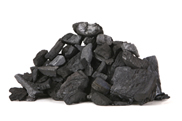State Spends $853 Million Every Year on Imported Coal
 MADISON — Wisconsin is the fifth most dependent state on imported coal, spending $853 million to import the fuel in 2008, according to a national report released today by the Union of Concerned Scientists (UCS).
MADISON — Wisconsin is the fifth most dependent state on imported coal, spending $853 million to import the fuel in 2008, according to a national report released today by the Union of Concerned Scientists (UCS).
“Despite having no in-state coal supplies, Wisconsin relies on coal for nearly two-thirds of the electricity it produces,” reads Burning Coal, Burning Cash, a report released today by UCS that ranks the states that import the most coal. “Compared with other states, Wisconsin is the fifth most dependent on net imports as a share of total power use.”
In 2008, Wisconsin spent $152 for every man, woman and child importing coal from nine different states. According to the report, the state spent $25 million on coal from Montana, $94 million on Colorado coal, and over $700 million on coal from Wyoming.
“Relying on coal in a non-coal-mining state is a costly and dangerous addiction,” said Ryan Schryver, clean energy advocate at Clean Wisconsin. “We not only pay $152 for every man, woman and child to import coal into the state every year, we also pay the high price of coal polluting our waters, diminishing the quality of our air, and threatening our health.”
Beyond showing the high costs of imported coal, the report also highlights solutions that will help Wisconsin reduce its heavy dependence on the fossil fuel. “Investing in energy efficiency is one of the quickest and most affordable ways to replace coal-fired power while boosting the local economy,” it reads. It later continues, “The state has the technical potential to generate 4.2 times its 2008 electricity needs from renewable energy.”
The recent construction of power plants, new renewable energy projects, and statewide energy efficiency efforts have already created a large surplus of electrical generation capacity in the state that reduces the need for many coal plants to continue producing power. The Wisconsin Public Service Commission is currently investigating the potential to retire some older coal-fired power plants to reduce the state’s dependence on coal.
“Continuing to operate expensive, environmentally destructive coal plants when we have a surplus of power is a terrible waste of time, money and resources,” said Schryver. “The cost of coal is high, and we should take this opportunity to shut down the oldest and dirtiest coal plants in the state.”
